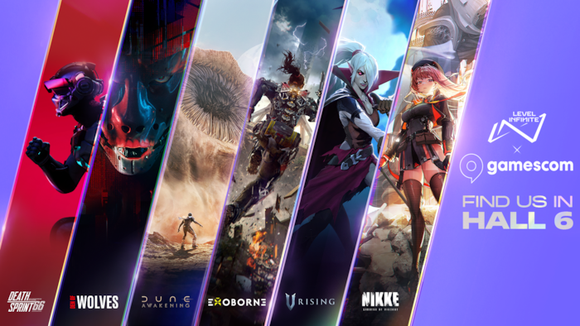
by Cui Peng
Tencent Games is increasingly asserting its dominance in the global gaming market, with 31 nominations at this year’s The Game Awards (TGA), including four for Black Myth: Wukong, a contender for Game of the Year. This milestone highlights Tencent’s shift from being primarily a revenue leader in gaming to actively competing on the global stage with standout products.
Unlike companies such as Sony and Microsoft, which often acquire studios with established IPs to strengthen their ecosystems and enhance platform exclusivity, Tencent takes a different approach. By investing in a diverse range of developers worldwide, Tencent focuses on providing operational support and resources while allowing studios to retain creative independence.
As Juno Shin, head of Tencent’s Venture Lab, explains, “We are not financial investors, we are strategic investors.” This difference underscores Tencent’s global strategy of offering not just funding but also hands-on support across marketing, research and development (R&D), and distribution. These efforts aim to help studios navigate the complexities of game development and find long-term success.
One example of this approach is Eleventh Hour Games, an American indie studio that developed Last Epoch. Over the course of two years, Venture Lab provided more than just financial backing, offering guidance on production processes, financial planning, and strategies for global distribution. This support was instrumental in helping the relatively inexperienced studio launch a game in a highly saturated market. Last Epoch ultimately achieved notable commercial success and garnered positive reception, demonstrating how such partnerships can help emerging developers establish themselves.
Tencent’s portfolio spans over a hundred studios, from small startups to established companies. Some studios receive minority investments, while others are fully acquired. Regardless of the shareholding structure, Tencent emphasizes maintaining studios’ creative freedom and leadership teams.
This approach is evident in the way Tencent’s Pteam works with its majority-owned studios. Pteam manages and oversees the development of these studios, offering support in areas like development processes, marketing strategies, and platform negotiations.
For example, Stunlock Studios, the Swedish developer behind V Rising, faced resource constraints in adapting the game for consoles. Tencent’s Pteam stepped in, mobilizing resources from its network to assist with the technical development of the console version while allowing the original team to focus on the PC release. The result was a resounding success: V Rising sold over 4 million copies and expanded to multiple platforms, showcasing Tencent’s ability to help studios scale effectively.
At the forefront of Tencent Games' international efforts is Level Infinite, the company’s global publishing arm launched in 2021. It manages 20 studios, offering tailored services such as localization, platform relations, and full-scale marketing.

At this year’s Gamescom in Cologne, Level Infinite secured a prominent exhibition space, showcasing a range of exciting new titles. Among them were SharkMob's battle royale shooter Exoborne, Funcom’s highly anticipated Dune: Awakening, and Stunlock’s V Rising. These titles, released overseas in collaboration with Level Infinite, demonstrate its role in helping developers reach global audiences. By partnering with platforms like Steam, Sony, and Microsoft on behalf of its studios, Level Infinite provides a critical edge in navigating the competitive international market.
The gaming industry’s intense competition further underscores the importance of such support. Nearly 20,000 games were released on Steam in the first 11 months of 2024 alone, making it harder than ever for new titles to gain visibility.
Games like Black Myth: Wukong further demonstrate the potential of Tencent’s approach. While the game’s success is driven by its innovative use of Chinese mythology and modern design, Tencent’s support in platform negotiations and global distribution has helped Game Science expand its reach to international audiences. This collaboration highlights Tencent’s ability to enable local studios to achieve worldwide recognition.
The stakes are particularly high for early-stage studios, which often struggle to make their first game a success. As Martin Sibille, head of Global PC and Console Publishing at Level Infinite, observed, “Three to five years ago, a game with some innovation could easily draw attention. Now, standing out is exponentially harder.”
This sentiment reflects the increasingly crowded market, where even modest missteps can hinder a game’s success. Stephane Decroix, head of Pteam in Europe, echoed this, noting that games without distinctive elements struggle to compete, as players tend to stick with established hits.
Uniqueness is now more critical than ever in the gaming industry, where players demand fresh experiences. Tencent’s emphasis on fostering originality, coupled with operational and strategic support, helps developers navigate these challenges.
However, Tencent’s strategy is not without challenges. Supporting hundreds of studios demands significant resources and resilience, and not all projects succeed. The gaming industry’s long development cycles and inherent unpredictability further amplify these risks. Many startups also struggle with recruitment, financial management, and production pipelines—issues that can lead to financial instability, as noted by Juno Shin.
To address these challenges, Tencent fosters a collaborative culture across its network of studios. Regular internal meetings bring studio leaders together to share insights from both successes and failures, helping developers identify unique selling points and avoid common pitfalls. “The more they share, the more support we can provide,” Shin emphasized, highlighting how Tencent’s tailored approach helps studios navigate obstacles and improve their chances of success.
By enabling studios to take creative risks and providing them with the tools to succeed, Tencent is reshaping how success is achieved in a highly competitive and interconnected gaming market.